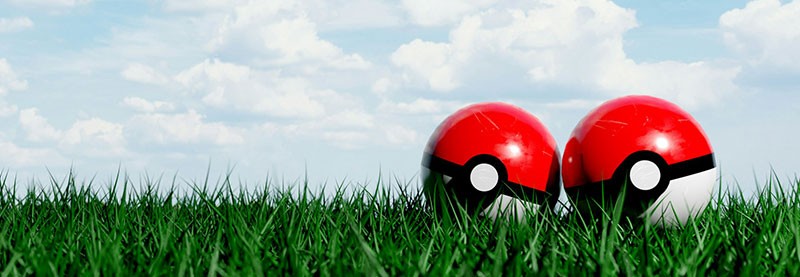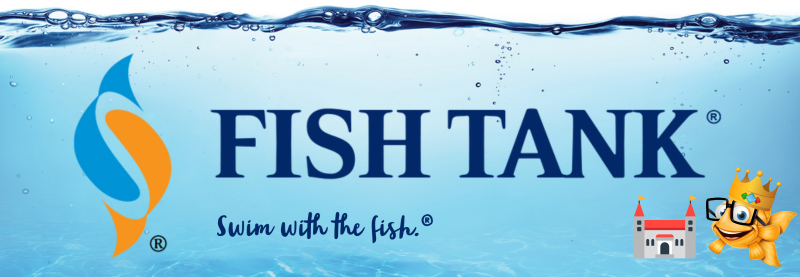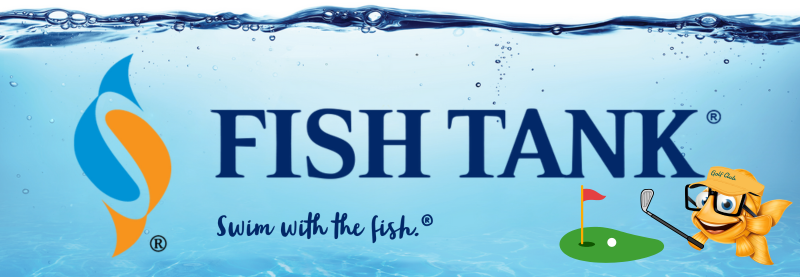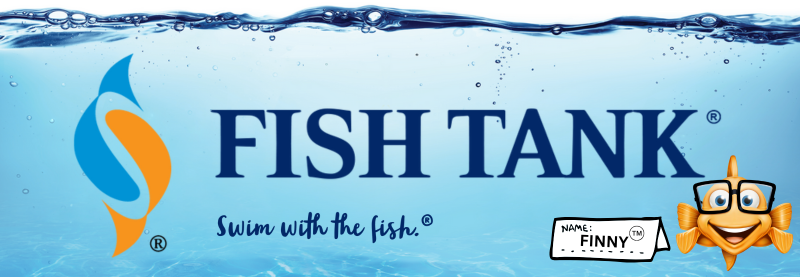Intellectual Property Insights from Fishman Stewart PLLC
Newsletter – Volume 24, Issue 5
Share on Social
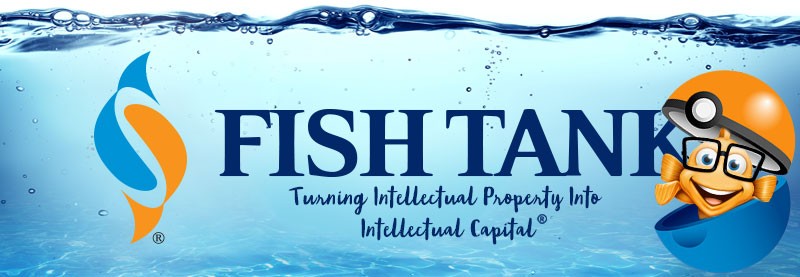
Pokémon vs. Palworld – The Poké Ball is in Nintendo’s Court
By Niklas Sandell and Kristyn Webb
Poketto monsutā, “Pocket monsters”, or simply Pokémon. You are likely hard pressed to find anyone today who has never heard this term, or wouldn’t recognize the adorable, yellow, mouse-like Pikachu, or any of the other colorful and fantastical creatures belonging to the Pokémon franchise. For the unaware reader, in the Pokémon world, humans co-exist with hundreds of Pokémon species, and players can catch, raise, and ultimately fight matches with their Pokémon, to earn trainer badges, explore the Pokémon world and compete for championship titles.
Pokémon debuted in Japan in 1996 as a set of computer games (Game Boy cartridges—if anyone remembers what those are), and since then it has steadily grown into a globally recognized franchise of video games, animated series, films, trading cards, and other related media and merchandise. Every few years, the brand has a resurgence of popularity as a new generation of children discover the characters, and as new spinoff games are released to keep up with the latest technology trends that appeal to now-adult fans who remain young at heart.
During the early 2000’s the world experienced a global phenomenon dubbed “Pokémania.” And who can forget the summer of 2016, when Pokémon Go invaded our smartphones as well as our streets. Safe to say, Pokémon remains a staple in pop culture and has managed to stay relevant with its audience for decades. It is almost hard to imagine that it has been close to 30 years now, and only a few competitors have successfully tapped into the Pokémon concept and have challenged Pokémon’s grip on the market.
Enter “Palworld”— a computer game created and published by Japanese developer Pocket Pair. Released as an early access game in January 2024, it sold over seven million copies on the computer platform Steam in the first five days and had nearly 20 million players in the first two weeks. The game has been described as “Pokémon with guns,” and on the surface, the game shares many similarities with Pokémon. You catch the monsters (or “Pals”) in the game with a ball-shaped device, you train them, you battle with them, and you explore the world to find more monsters. However, this could describe many other games in the same or similar genres. The character designs are not exactly identical (although sometimes eerily similar), and many commentators online and on social media have set the internet ablaze weighing in on the issue by comparing and contrasting Pals with Pokémon.
The question on everyone’s lips is whether they are different enough, or whether the similarities amount to intellectual property infringement.
So far, The Pokémon Company (the entity that manages Pokémon IP rights on behalf of its three joint owners, Nintendo, Game Freak, and Creatures) has taken no formal legal action, but it has issued a statement, saying: “We intend to investigate and take appropriate measures to address any acts that infringe on intellectual property rights related to Pokémon.” As can be expected, Palworld’s meteoric success has likely awoken the sleeping Snorlax, and the media buzz surrounding the newcomer may prompt Nintendo and the Pokémon Company to intensify their work with enforcing their rights. So far, we have seen Nintendo attempt to block trademark registration for “PokeZoo” for trading cards, but if they are truly on the warpath, Pocket Pair might be next.
While it may be easy to get out the pitchforks and torches on social media, The Pokémon Company may have good reasons for delaying formal legal action and taking time to evaluate the strength of its case first.
In copyright law, you can only get protection for the expression of an idea, not the idea itself. This dichotomy recognizes that ideas are abstract and may be common to many people, but because there are many ways to express an idea, the expression may be protected. In other words, it’s not so much what you say, but how you say it.
Sometimes it is a fine line between what is and what isn’t infringement, and it seems like Pocket Pair has been very deliberate in designing its Pals, to be evocative of, but not identical to existing Pocket monsters that have been around for decades. There’s also potential copyright protection for characters, and trademark protection for characters’ names or the look of individual Pokémon, as well as issues regarding potential consumer confusion (i.e., putting out products that get too close to existing products).
Also, The Pokémon Company may be taking its time to consider where to bring formal legal action. While copyright and trademark laws are somewhat harmonized in a number of countries across the globe, these rights are jurisdictional — meaning that there are differences between countries in the scope of protection — and there are certainly some regions and individual countries where IP rights holders’ have better chances of success. While a claim may be brought in a number of forums, it is important for litigants to consult with subject matter experts in those various jurisdictions, to weigh the options and strategizing accordingly.
So will we see The Pokémon Company take legal actions against Pocket Pair, and if so, which arsenal of intellectual property right will they carry? It is hard to say at this point in time. Just like when picking the right Pokémon before a Pokémon-battle, careful consideration is required before shouting “I choose you!” in terms of enforcement strategy. After all, when protecting your most important assets, you really want to be “the very best”. While the “where, when, and how” details of a lawsuit remain uncertain, one point is clear: once Nintendo and The Pokémon Company have committed to a strategy, they’ll likely throw down the Poké Ball — hard.
If you have any questions regarding potential infringements in copyright, trademarks, or other IP rights, or questions regarding jurisdiction and strategies on where to take legal actions to get the best results, please do not hesitate to contact us.
Niklas Sandall is a senior associate with Advokatbyrån Gulliksson in Stockholm, Sweden, where he specializes in in intellectual property law with an emphasis on strategic counselling and management of trademarks and other intellectual assets. Kristyn Webb is an associate with Fishman Stewart in Troy, Michigan (US), where she leads the Copyright Practice Group.
Related Content from Fishman Stewart
Despite her pseudo-legal background in Suits, Meghan has been running into one issue after another in her efforts to register the trademark and logo for her new lifestyle company, for now, called “AS EVER”.
By 1930, efforts began in New York to replace Mother's Day with Parent's Day because men were more than just breadwinners. Those efforts didn't catch on, probably because in that era, women often spent more time in the home.
In February, Nike and Skims announced that they will be working together on a new brand, NikeSkims. The co-brand will create a new line of training apparel, footwear, and accessories specifically designed to meet the unique needs of women athletes.
Generally, federal courts have exclusive jurisdiction over copyright cases, and often, this presents an insurmountable paywall for individual artists and small businesses to vindicate their rights, especially where the value of the individual copyrighted works are relatively low.
Dedicated to raising public awareness about the importance of encouraging innovation and creativity throughout the world, the World Intellectual Property Organization (WIPO) annually observes World Intellectual Property Day on April 26 to showcase the role that patents, trademarks, industrial designs, copyrights and trade secrets play in our everyday lives.
Hold onto your foam fingers, sports fans – college sports just got a whole lot more interesting! The latest updates to Name, Image, and Likeness (NIL) rules are making student-athletes bigger than ever, and it’s not just about the game anymore.
Did a federal court in Louisiana recently decide that US copyrights are global rights? It seems so.
L.A.B. Golf aims to protect its innovations, and therefore its market position, owning three patents for its zero-torque design. The question now is whether L.A.B. Golf can withstand the wave of copycat designs.
One of his most famous songs, “Lose Yourself” was recently at the center of a lawsuit. In 2019, Eminem’s publishing company Eight Mile Style sued Spotify claiming that Spotify streamed a number of its musical compositions without proper licenses.
Our latest article tackles three common trademark questions: 1. Can I trademark my own name? 2. Can I trademark the name of a fictional character? 3. Can I trademark the name of a U.S. president or British royal?
IDENTIFYING, SECURING AND ADVANCING CREATIVITY®


